Arepas might be a good substitute to keep the cornbread flavor while swapping the cake texture for flatbread. You've given me a new idea to try for next time! :)
Ingredients:
- 2 large slices of sourdough bread
- 1 cup shredded cheese
-
- I used provolone, gruyere, and sharp cheddar
- 1/2 cup napa cabbage kimchi
- 4 slices thick-cut bacon cut into 8 strips
-
- Streaky/belly bacon is preferred over back/Canadian
Directions:
- Add the bacon strips to a cold pan before bringing the pan up to medium heat
- Render the fat from the bacon, flipping occasionally until desired crispiness is reached (I went for about 10 minutes total cook time)
- Remove the bacon from the pan and press the two slices of sourdough bread into the grease to toast them
- Flip once the bread begins to toast but before it becomes brown (I went for ~3 minutes)
- Flip the toast back and layer on your ingredients, starting with cheese on both pieces of toast, followed by bacon on one slice and kimchi on the other. Top the bacon with the rest of the cheese.
- Cover the pan, lower the stove to low heat, and allow cheeses to melt slightly before pressing the two halves together to form the sandwich
- Press the sandwich with a weight or a spatula and cook until the cheese has completely melted
- Remove from pan, cut in half diagonally, plate, and enjoy!
I made a little round ball of rice to put in the center just to show there is rice there. Although to be honest I wouldn't be mad if that bowl was full of beef instead of rice.
This is actually just four separate side dishes in a bowl, so here's a quick writeup for the beef marinade since the other recipes are basic fried eggs and wilted spinach:
- 2 tbsp gochujang
- 1 tbsp soy sauce (Tamari is my brand of choice)
- 1/2 tbsp brown sugar
- 1/4 Asian pear blended
- 1 knob ginger, grated
- 2 clove ginger, grated
- 1 tsp rice vinegar
- 1 tsp gochugaru
- 1 tsp fish sauce
- 1 tsp sesame oil
- 1/2 tsp black pepper
Per serving
- 100g pasta
- 2 Roma/plum tomatoes
- 1/4 cup heavy whipping cream
- 1 tbsp olive oil
- Whole black peppercorn
- Salt
Directions
- Bring a small pot of saltwater to boil
- Heat a frying pan (stainless > nonstick, no cast/carbon) up to medium heat
- Add pasta to the pot
- Add peppercorns to the pan and fry until they no longer make noise, then remove them from the pan
- Deskin and deseed the tomatoes, then add them to the pan, being careful to avoid splattering
- Cook, stirring constantly, until tomato pectin begin to gel
- Once gelled, add in the heavy cream and continue stirring until the sauce thickens, salt to taste
- Transfer undercooked pasta to sauce, being sure to bring over starched pasta water as you do so
- Stir to emulsify the starched water into the sauce and coat the pasta as it cooks
- Plate, garnish with Parmigiano Reggiano, and enjoy!
Tips
- To deskin and deseed your tomatoes, use Kenji Lopez-Alt's method. Cut the tomatoes in half, then run the cut edge along a cheese grater to shred the pulp, using the skin of the tomato as a barrier between your hand and the grater. Push the pulp through a mesh strainer to remove the seeds and fibrous bits.
- Pour the tomato pulp into your wooden spoon instead of directly into the oil to help reduce splattering.
If you've got a starter that rises in 4 hours, you can make this bread tonight and be eating it tomorrow morning.
I use Tartine's ratios, an oven with the light on @103°F, my fridge at 35°F, and a thermometer.
- Preheat water to 100°F
- 30 min autolyze in oven
- 30 min fermentolyze in oven
- 30 min bulk ferment in oven
- Double stretch and fold, then 30 min rest in oven
- Lamination, then rest 30 min in oven
- Preshape, then rest 30 min on counter
- Shape, then cold proof in fridge at least 4 hours
- Preheat oven with Dutch oven inside to 475°F
- Reduce temp to 435 and bake covered for 20 minutes, uncovered for 20 minutes
- Let cool 1.5 hours before slicing
- Store loaf with cut side down to avoid staling
It's so easy, and you can serve it directly from the cooking pan! :)
- Bring a stainless steel or nonstick pan up to medium temp, then add in enough olive oil to coat the pan
- Crank some fresh cracked pepper into the pan and fry for a minute or two
- Dice 1/4 onion and cook it until it's translucent
- Dice 1/2 a pepper and cook until it's softening
- Quarter 2 tomatoes and add them to the pan.
- Once they become soft, pull the skins off your tomatoes with tongs and mash the remaining flesh into a pulp
- Toss in oregano and salt to taste.
- Cook until things go from runny water to jammy sauce, about 5 minutes
- Make divot in the sauce and crack an egg into each void, salting the eggs for taste
- For set tops, cook the eggs covered for 3 minutes or so
- Remove from heat when eggs are about halfway to your desired texture
- Serve with parsley garnish and enjoy!
Thank you! It's my own recipe. Below are the steps, let me know what needs explained!
Preheat a fry pan (stainless > nonstick > carbon/cast) on high while you bring saltwater to a boil.
Once the water begins boiling and pan is to temp, drop your pasta, coat the pan with high heat oil, and grind cayenne, paprika, and black pepper into the pan to fry for 2 minutes.
Once oil is infused with flavors, add diced onions and peppers and fry for 3-4 minutes.
Once pasta is droopy but still very undercooked (it should still snap when bitten), move it to the pan and season with onion and garlic powder (make sure to bring a lot of pasta water with you. I use tongs to transfer).
Stir to incorporate and then leave untouched in pan until the pasta begins to fry. Ladle over 1/2 cup of pasta water to deglazed the pan. Repeat until pasta is nearly cooked through, 1-2 additional times.
Add in 1/2 cup of heavy whipping cream then lower heat to medium. Season with thyme and oregano, then stir constantly until cream has reduced into a sauce.
Remove from heat and add in a handful of spinach. Stir until spinach begins to wilt. Serve immediately with black pepper and cayenne garnish.
The gravy has garlic, ginger, scallion, and shiitaki mushroom for veggies. It's a roux-based beef stock gravy with soy sauce and Worcestershire.
That goes over sushi rice and a burger patty, then topped with a fried egg and scallions.
I am going to write a long form post/video explaining the steps I use with lots of data points, but at its core this is a 75% hydration Tartine country loaf.
What I think makes my process different my order of operations. I build the gluten network first via autolyze and fermentolyze steps, then build flavor by promoting the growth of lactic acid bacteria so that it outpaces the speed at which the yeast multiplies (dough temps as high as 100°F).
I have to stop that flavor buildup before the gluten network dissolves and the loaf over ferments, but once it's sufficiently acidified I'm basically waiting for the bread to rise like any commercial yeasted recipe.
I am currently using a 9 hour cold retard @ 40°F to stop the acidification and raise the dough at the same time, but I've got a feeling that is longer than what's actually necessary since the dough reaches temps that make the starter inert around 6 hours in. Since commercial breads can rise in like 4 hours in cold temps, I think there's further optimization that can be done here, but I'm not waking up at 3 AM to bake bread anyway.

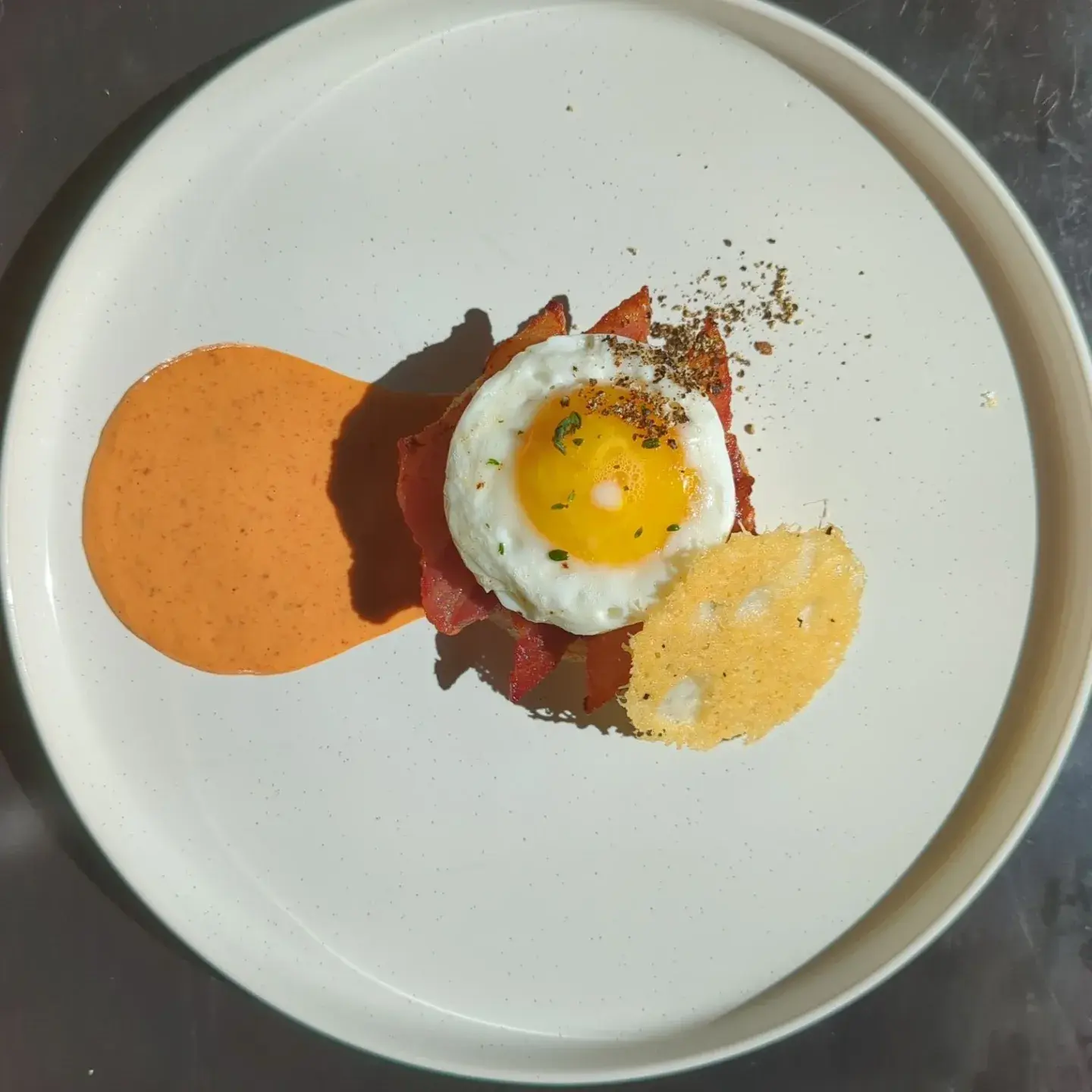
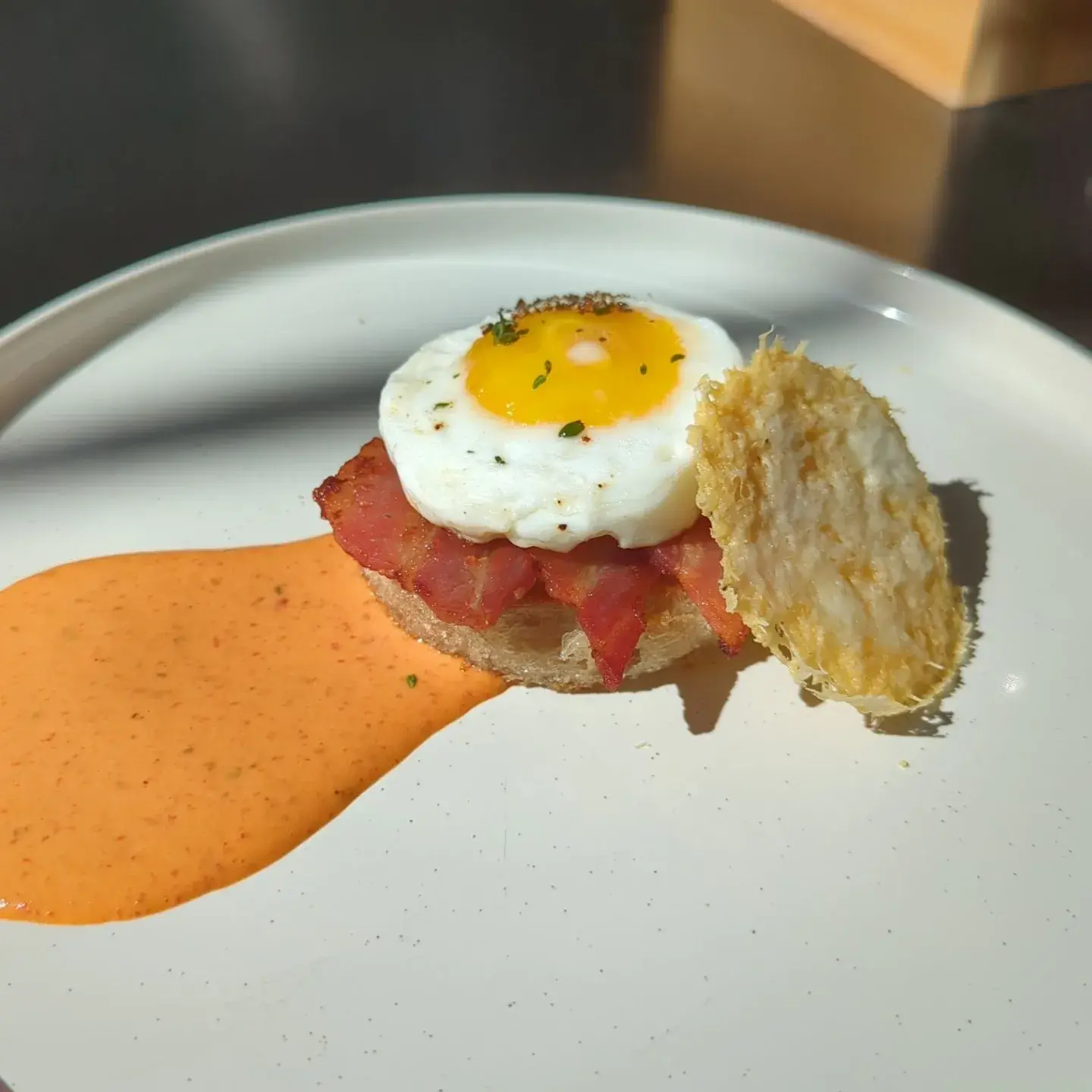

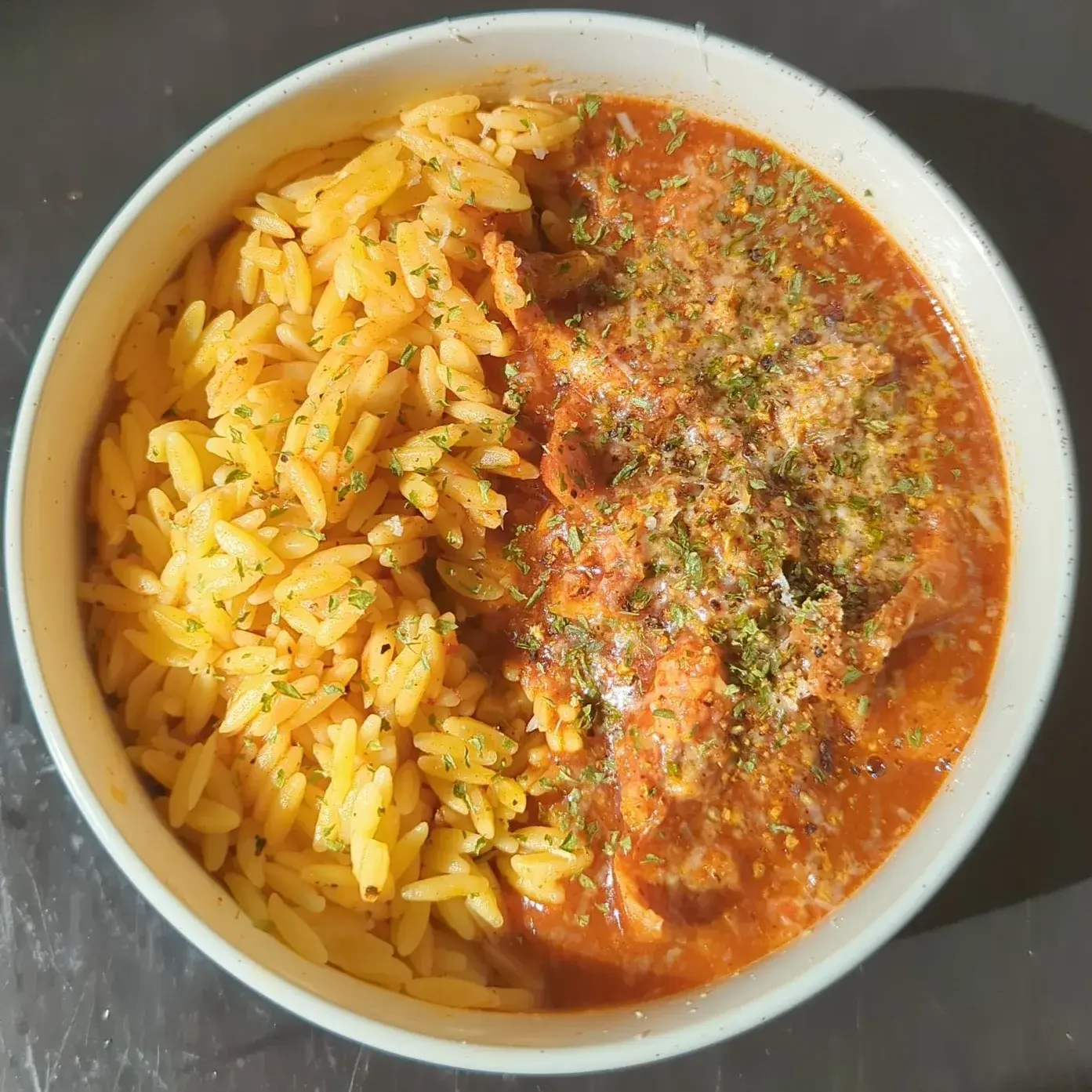
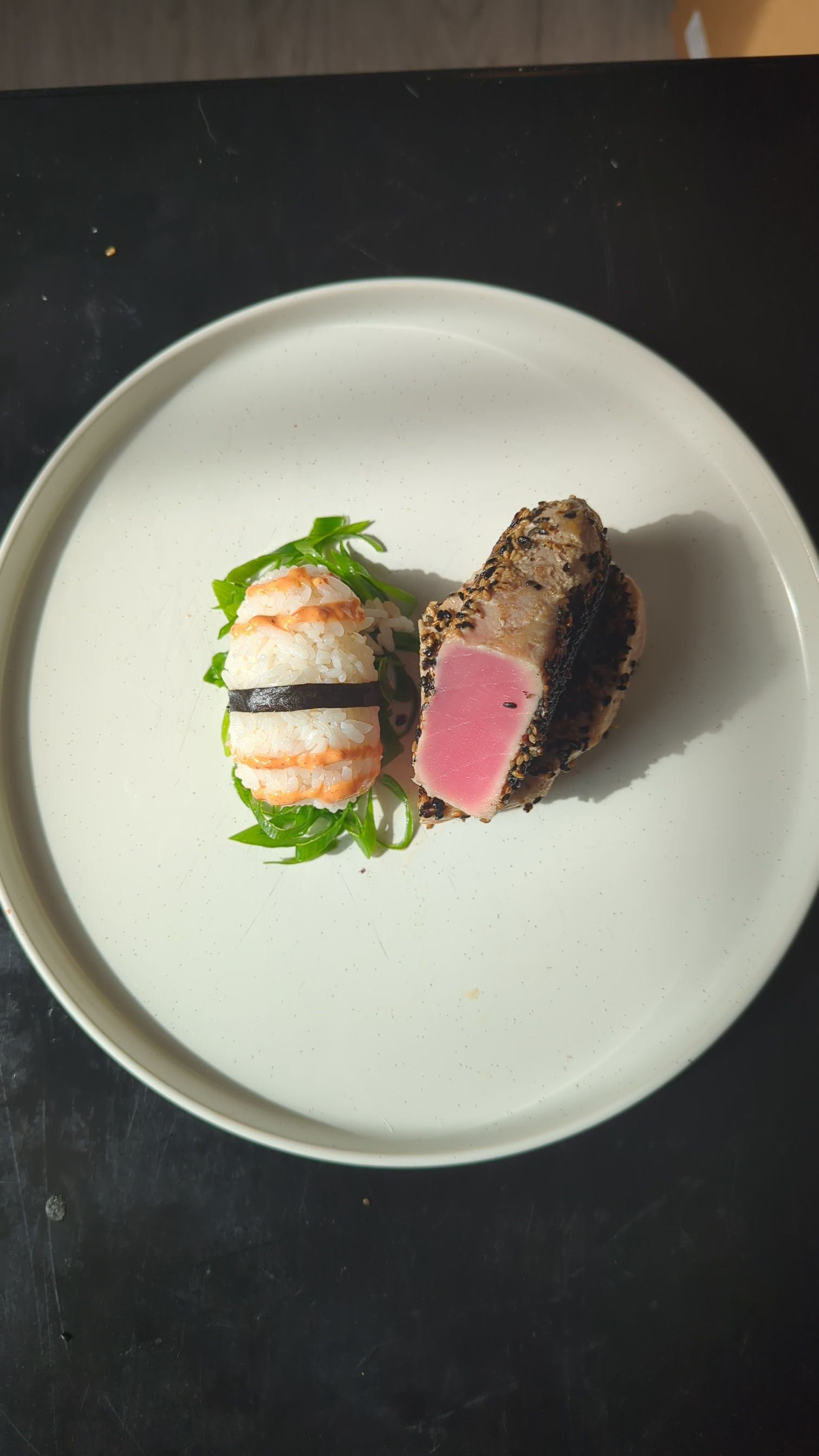
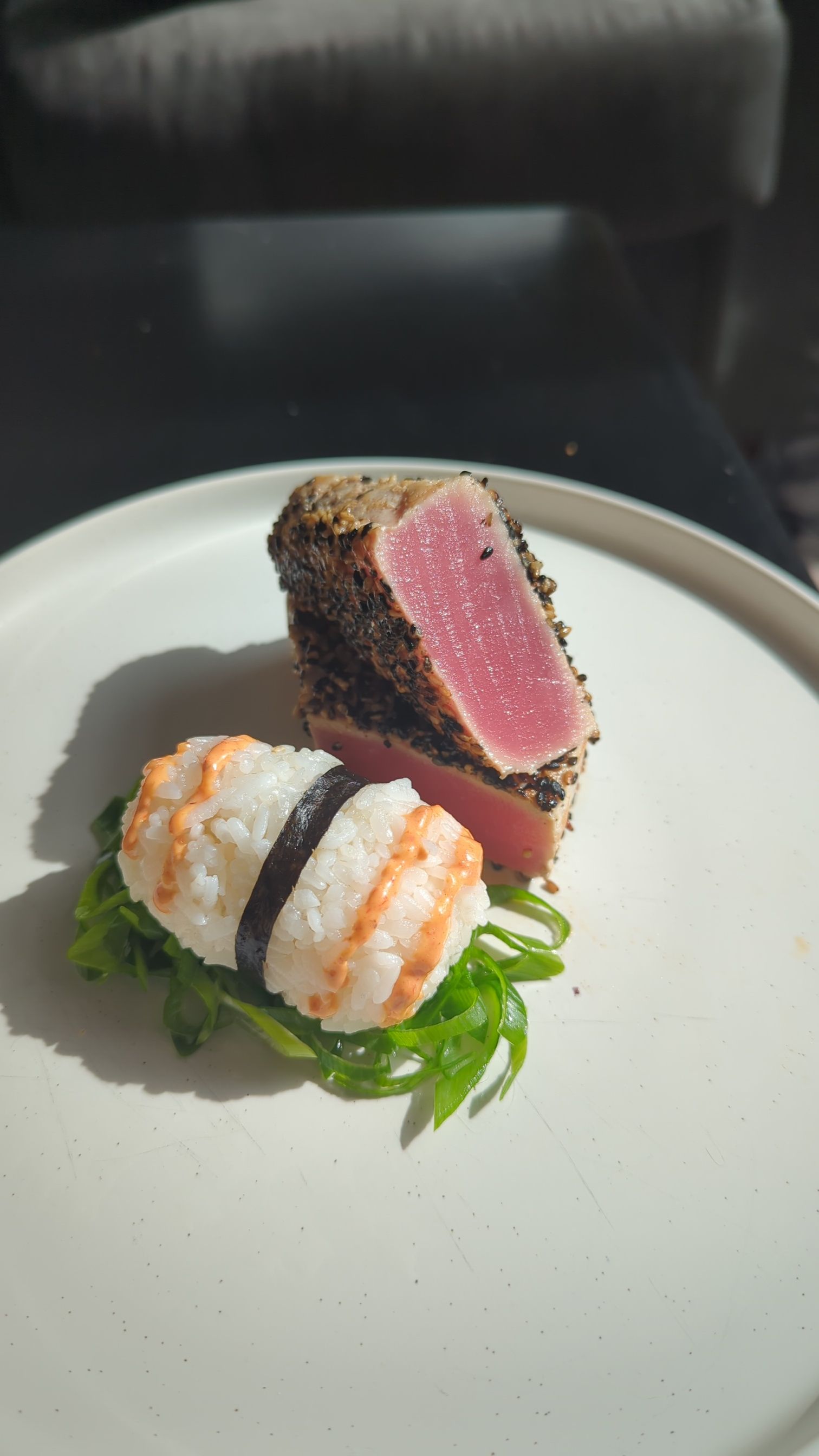

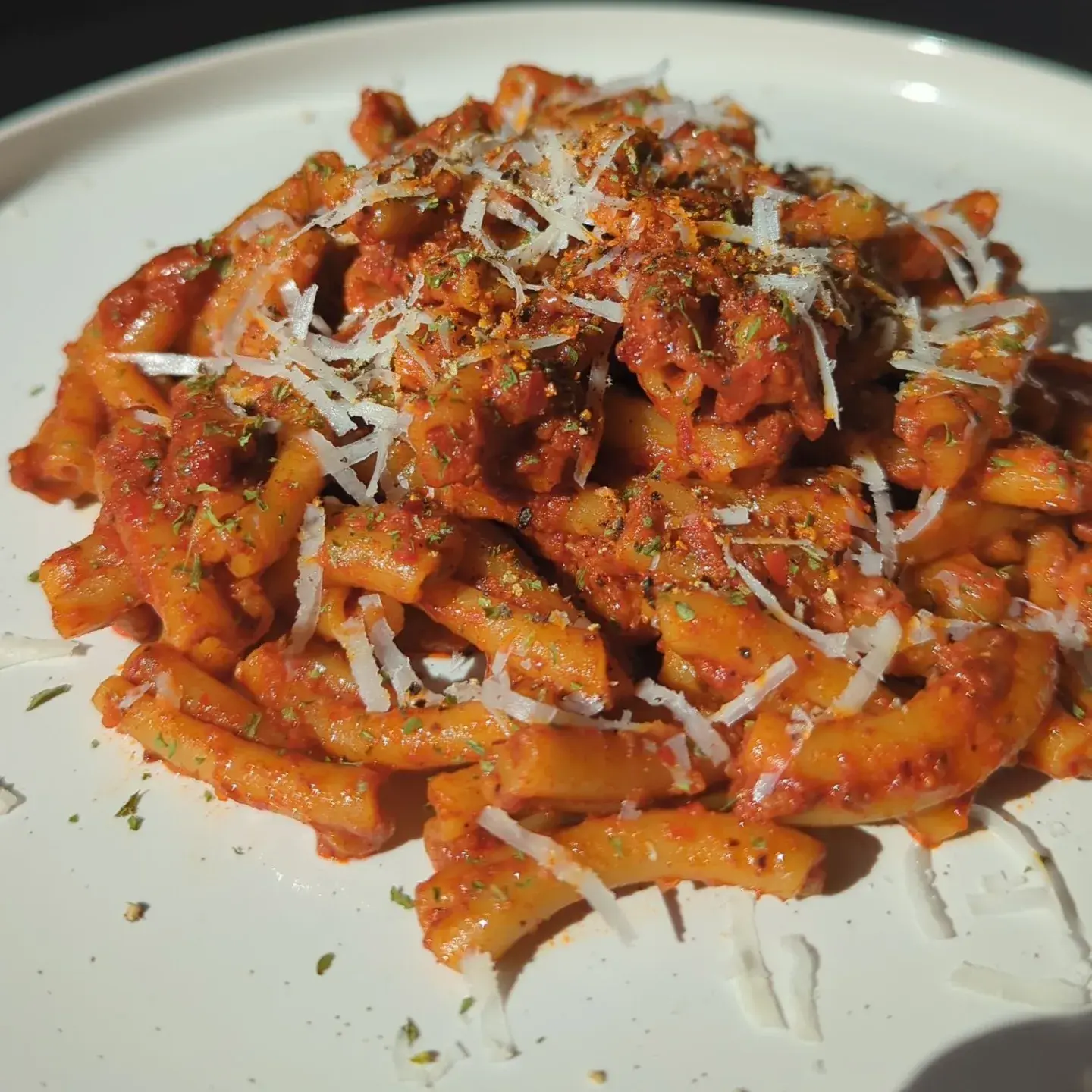
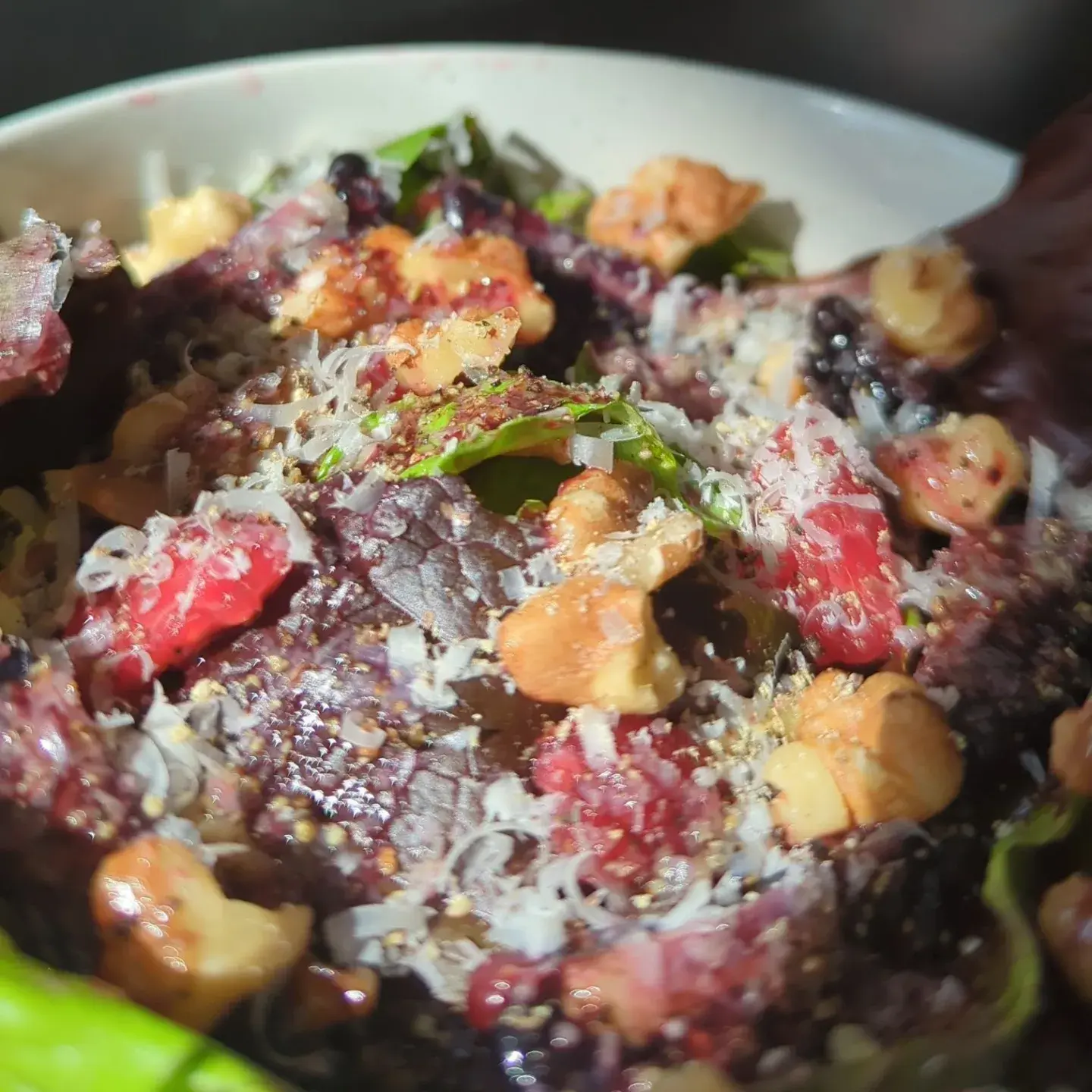
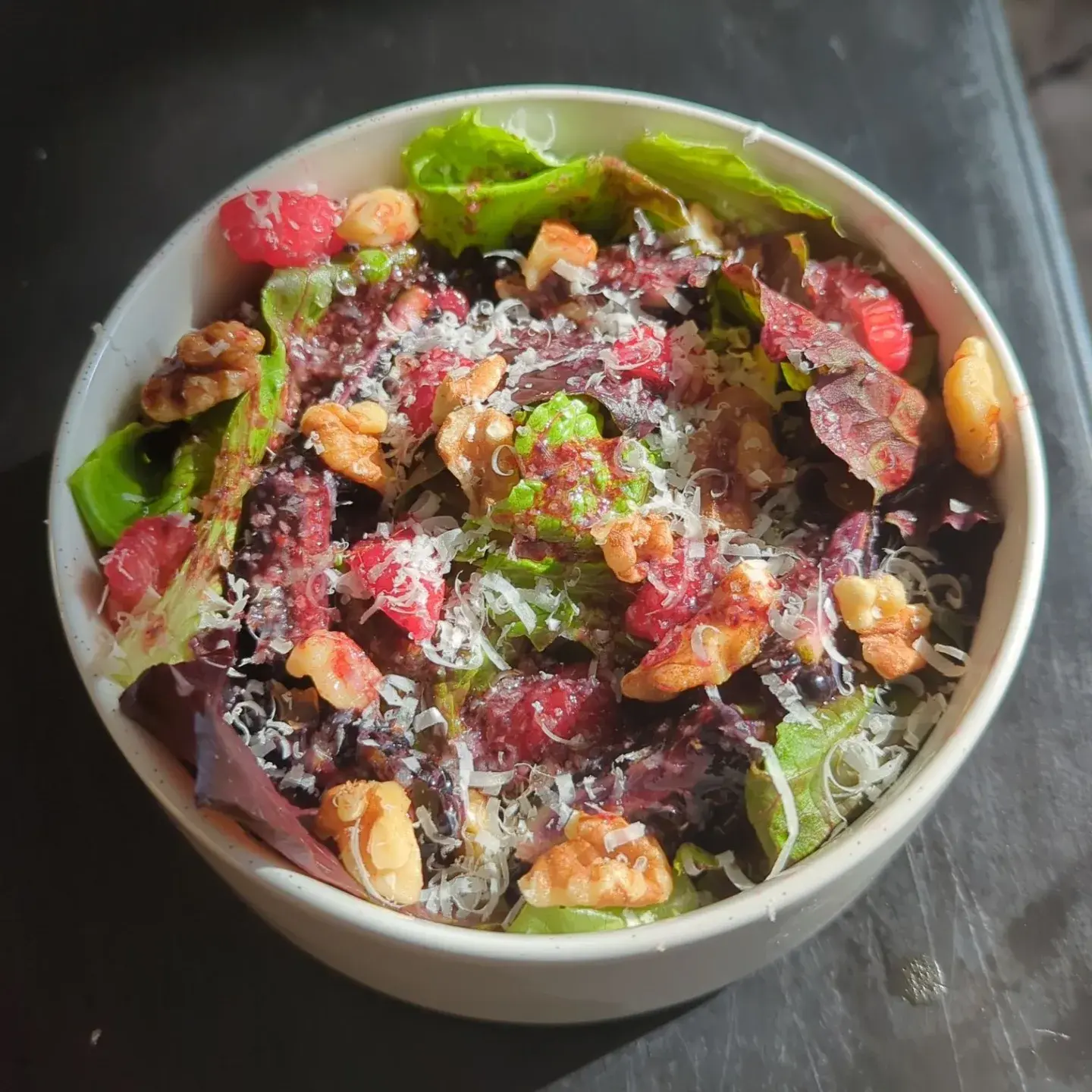


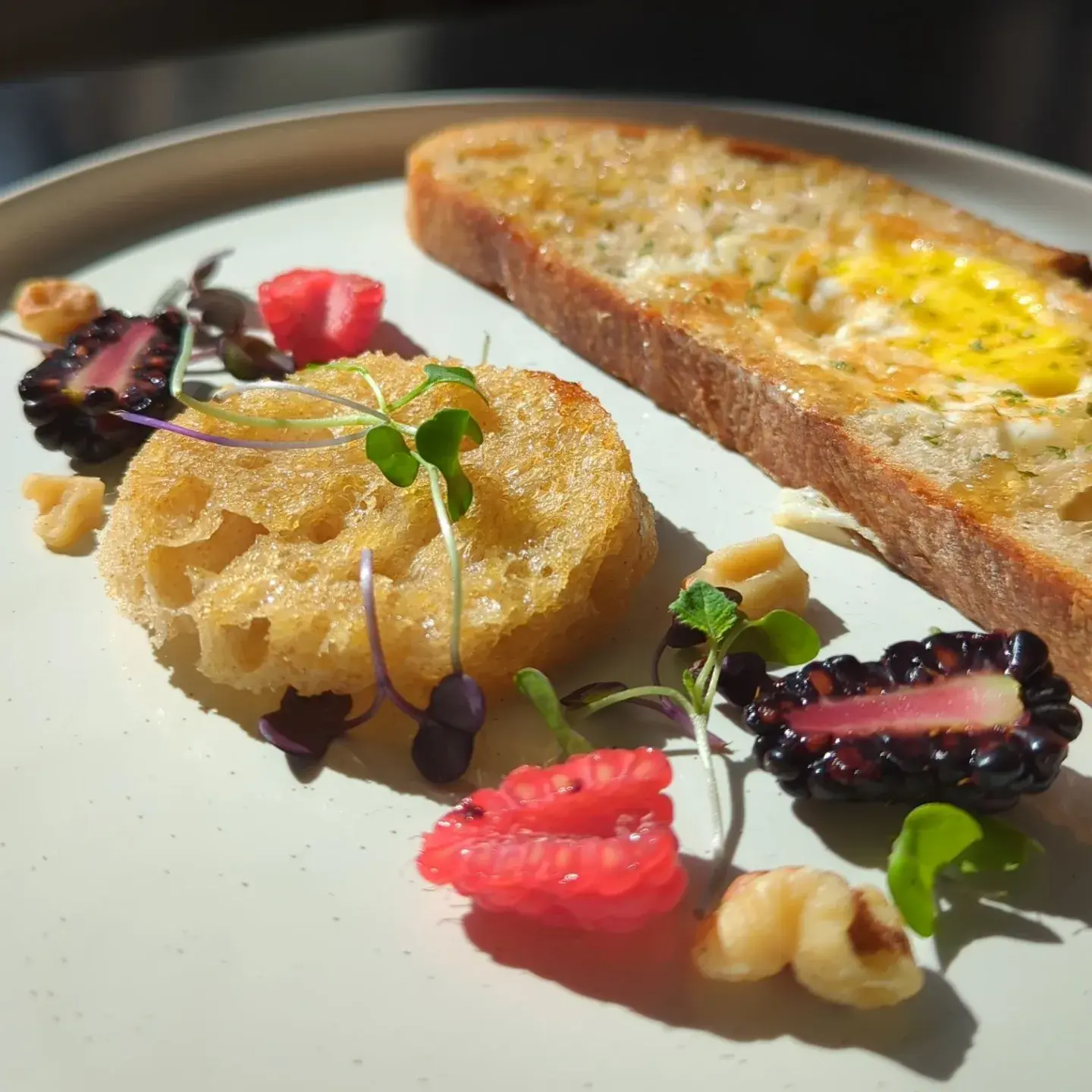



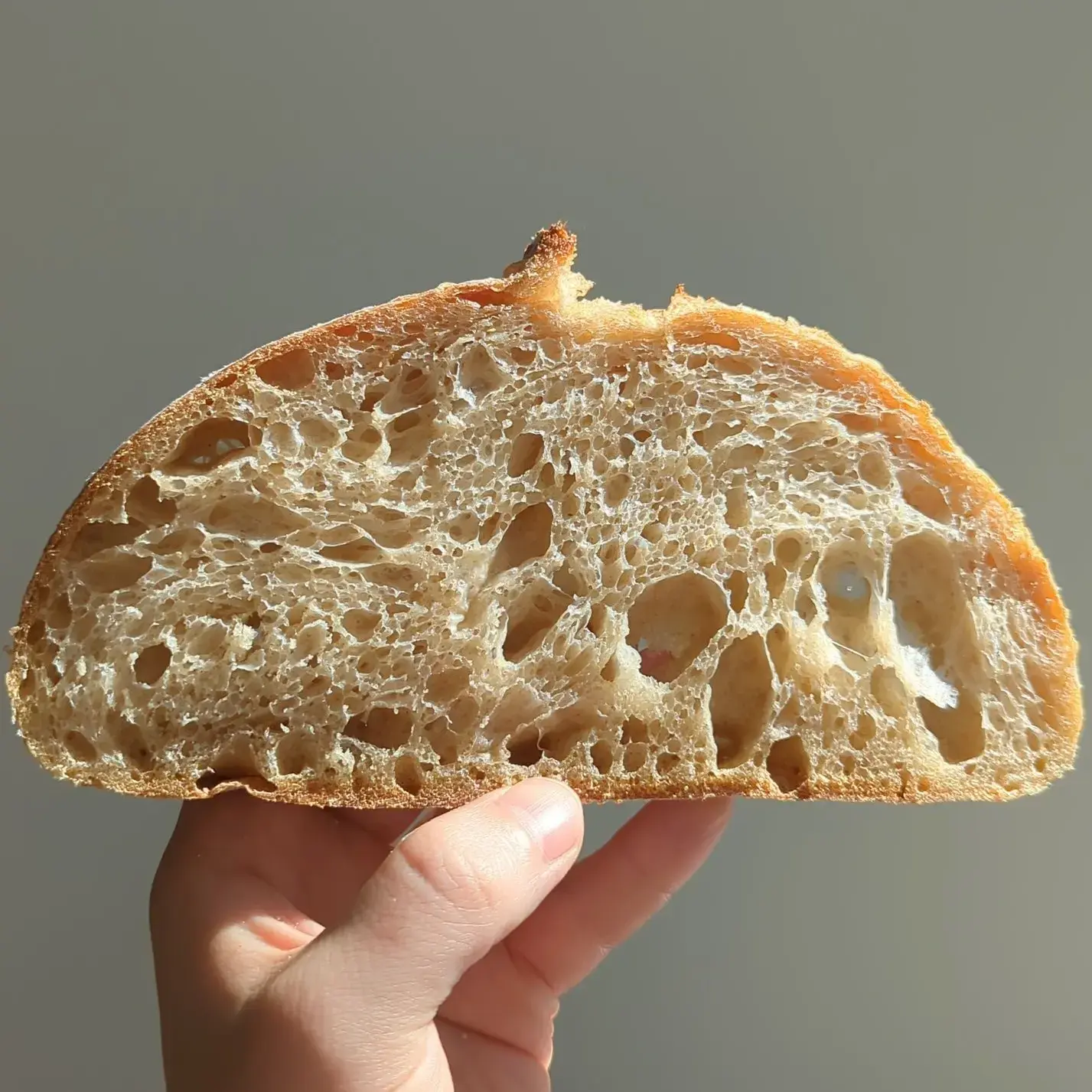

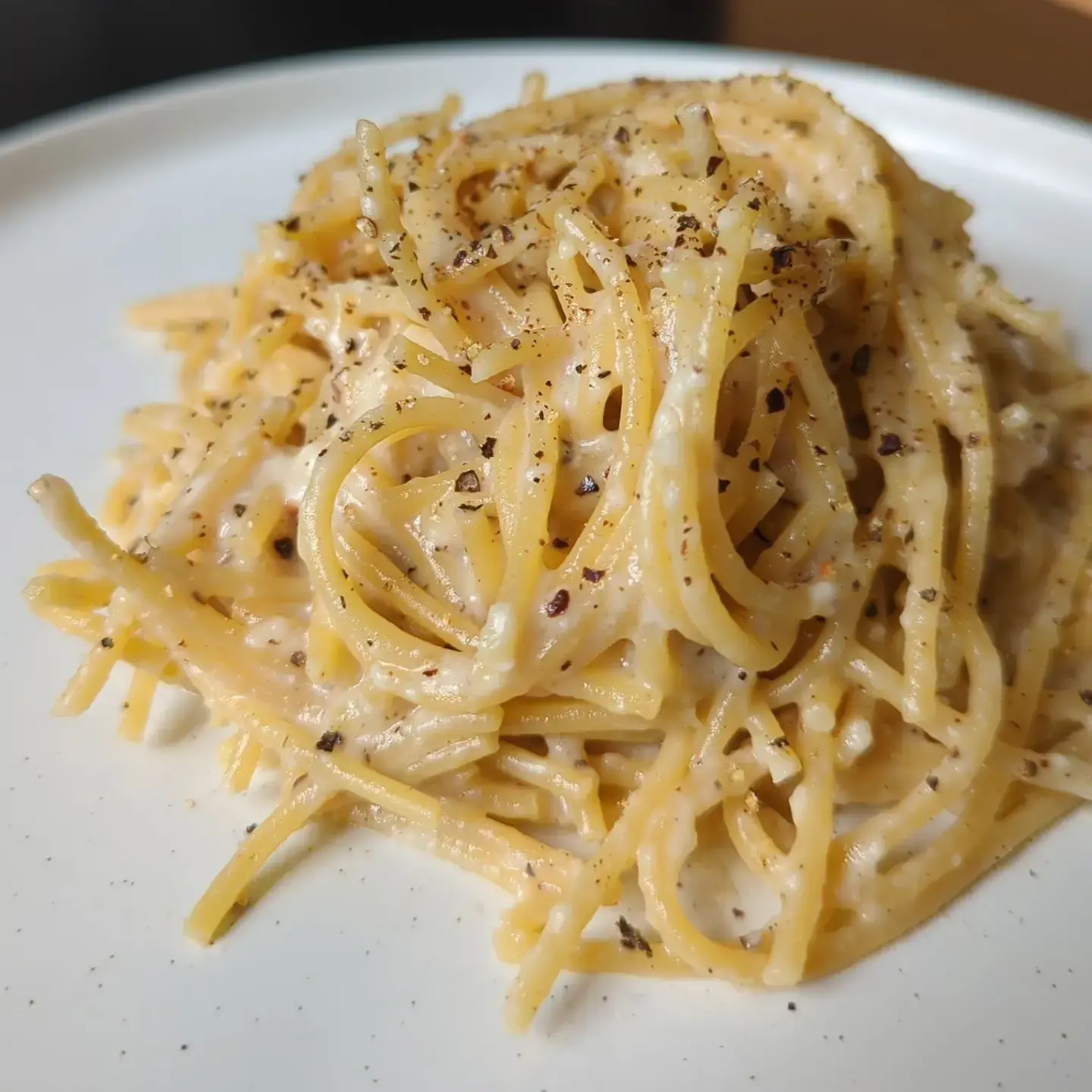







Appreciate the feedback. I noticed it after I had finished eating and was reviewing pictures. Nothing could be done at that point.